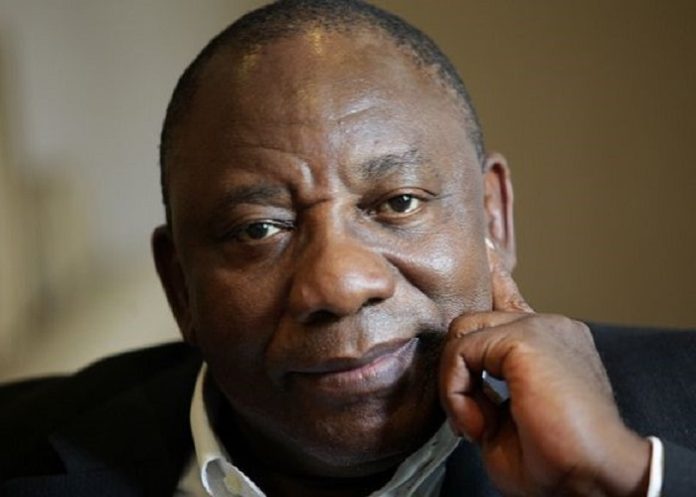In a setback for government, the Board of Healthcare Funders (BHF) and the SA Private Practitioners’ Forum (SAPPF) have won the first round in their battle against the National Health Insurance (NHI) Act.
The Gauteng High Court on Tuesday ordered President Cyril Ramaphosa to hand over his record of decision to sign the the NHI Bill into law. The court ruled that the President’s full record of all the proceedings must be provided within 10 calendar days – and that his decision to sign the Bill is subject to review in the High Court, and is not the sole jurisdiction of the Constitutional Court.
The ruling is a triumph for the two organisations, after the President’s legal team tried to convince the High Court that they had taken their fight to the wrong place and should have filed their respective applications in the Constitutional Court.
“It is a victory for the rule of law, and a step towards exposing the unconstitutional aspects of the (NHI) Act,” the BHF told News24, after Judge ML Twala further ordered the Presidency and the Minister of Health, a respondent in the matter, to pay the costs of the BHF and the SAPPF.
“It reaffirms the constitutional principle that all public power is subject to the rule of law and that no office bearer, including the President, is above judicial scrutiny.”
The BHF and SAPPF instituted proceedings last year to review and set aside Ramaphosa’s decision to assent to and sign the Bill into law on 15 May 2024, just before the elections.
The BHF launched its application on 27 May while the SAPPF did so on 1 October. However, the High Court opted to hear their cases together as they both faced the same counter arguments by the Presidency and the Health Minister.
In response to the applications by the BHF and SAPPF, the President and the Minister argued that the High Court lacks jurisdiction to adjudicate on the matters, which they argued were the sole jurisdiction of the Constitutional Court – that as Ramaphosa had allegedly failed to comply with his constitutional obligations, only the Constitutional Court could rule on the issue.
They said Ramaphosa’s decision could not be reviewed as he is not one of the listed entities or organs of state whose administrative actions are reviewable, and that even if it could be reviewed, then rule 53 of the Uniform Rules of Court did not require him to hand over his record of decision.
While rule 53’s main function is to facilitate and regulate applications for review, it requires the production of the record of an impugned decision as it provides the necessary insights into the decision-making process essential to determine the lawfulness and rationality of the decision.
However, the counter-argument by the BHF and SAPPF was that Ramaphosa’s powers to sign the NHI Bill did not involve a discretionary or political act but were a procedural step at the end of a much larger legislative process involving other branches of government.
While section 167(4)(e) of the Constitution specifically provides that, where the President or Parliament is alleged to have failed to fulfil a constitutional obligation, it becomes the exclusive jurisdiction of the Constitutional Court. However, in his ruling, Twala cited previous case law saying that where the President’s constitutional obligations are shared with other organs of state, then section 167(4)(e) does not apply.
The BHF and SAPPF also argued that Ramaphosa’s decision to sign the Bill was for an ulterior purpose, as he failed to consider information readily available to him, pointing out its unconstitutionality. This is despite the Constitution requiring him to first consider and scrutinise the constitutionality of a Bill before assenting to and signing it into law.
Twala’s ruling noted that there had been extensive opposition to the NHI Bill with Ramaphosa being petitioned to refer the proposed law back to the National Assembly by Momentum Health Solutions, Discovery Health Medical Scheme, Solidarity and the SA Health Professionals Collaboration (SAHPC).
On the eve of signing the Bill on 14 May 2024, the Western Cape Government also urged Ramaphosa not to do so, warning that it was unconstitutional, unaffordable and impractical. Twala’s ruling also referenced warnings on the NHI’s costs, including by the Davis Tax Committee (DTC) as early as 2017, which cautioned that the magnitude of the proposed NHI fiscal requirement is so large that it might require trade-offs with other programmes, like an expansion of access to tertiary education or social security reform.
SAPPF CEO Simon Strachan told Business Day it was striking that Twala had drawn attention to the extensive range of parties that had. over the years questioned the constitutionality of the Bill, including the National Treasury, Parliament’s legal advisers, the Western Cape provincial government and various industry associations that had not only made submissions to Parliament but also petitioned the President directly.
Presidential spokesperson Vincent Magwenya told News24 the Presidency would have to study the ruling before it could provide comment.
Business Day PressReader article – President told to hand over NHI record (Restricted access)
See more from MedicalBrief archives:
BHF’s legal challenge to NHI taken to ‘wrong court’, says Presidency
Medical schemes and union kickstart NHI legal challenges
NHI violates doctors’ and patients’ rights – SAMA constitutional challenge

